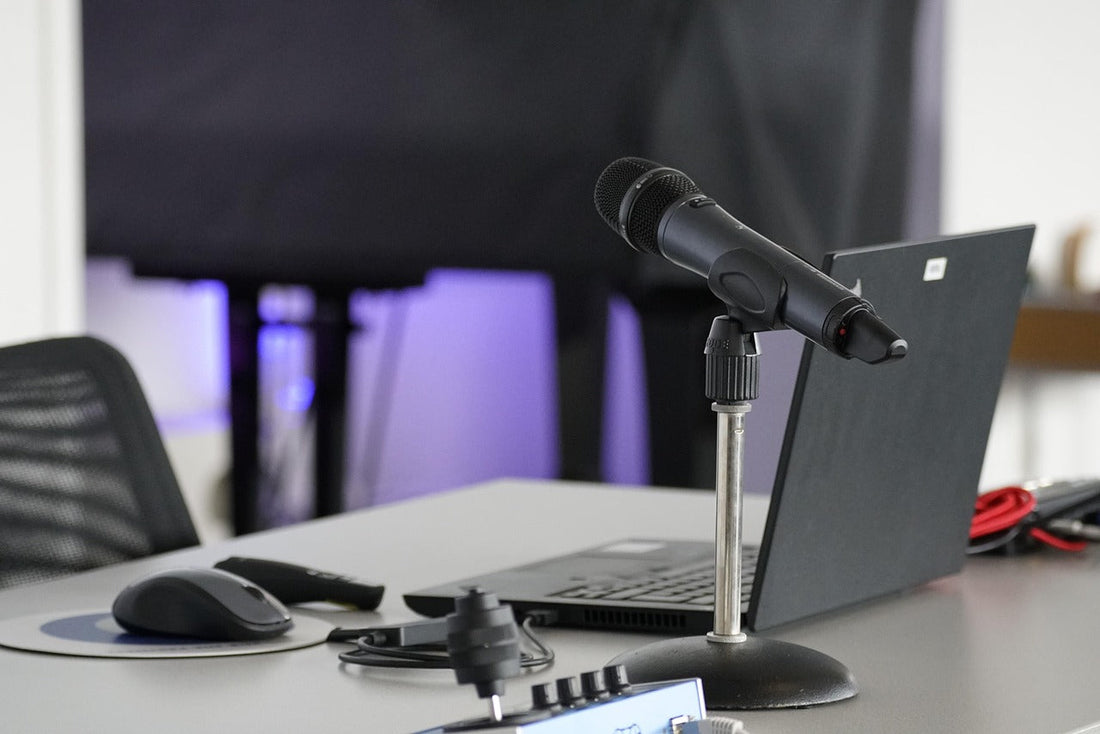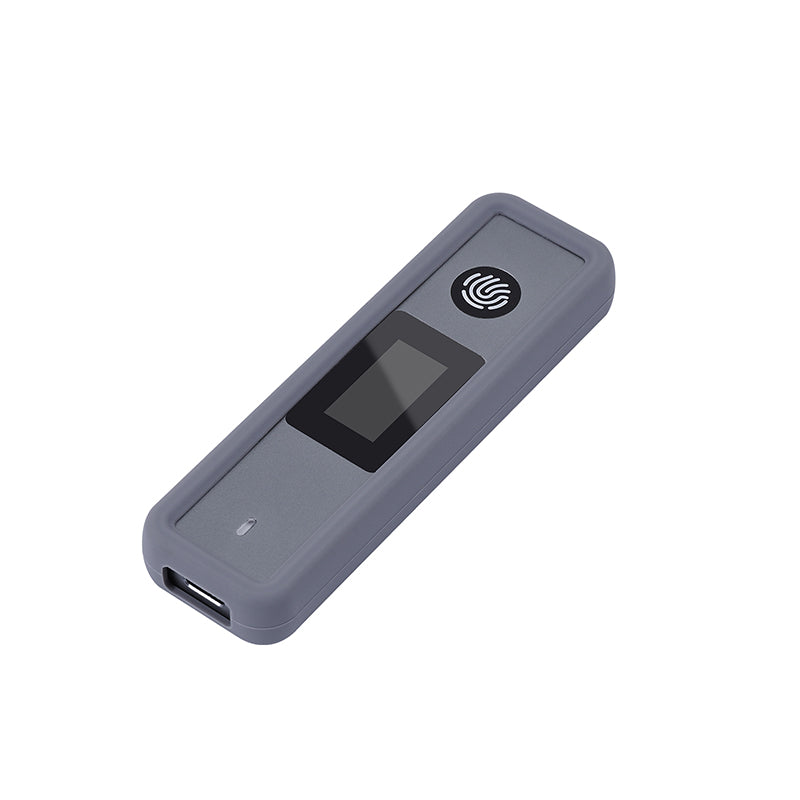
Share
From Streaming to Editing: How a Touch-Screen Dock Simplifies Your Entire Content Workflow
In 2025, content creation is faster, more interactive, and more competitive than ever. Streamers, YouTubers, and video editors need to juggle multiple devices, windows, and apps—all while keeping their creative energy focused on storytelling. Yet, many creators still find themselves tangled in a maze of cables, shortcuts, and peripheral devices just to manage simple tasks like switching scenes or adjusting audio levels.
That’s exactly where the new Stream Hub with Trigger Action Screen steps in: an All-in-One Touch Dock that merges the functions of a Stream Deck, USB-C hub, and workstation control center into one compact, customizable powerhouse.
If you’ve ever wished for a single device that could charge your laptop, expand your ports, read SD cards, and trigger macros with a tap — this might just be your next desk upgrade.
I. The Modern Creator’s Challenge: Too Many Devices, Too Little Space
Today’s creators do more than just stream or edit videos—they operate entire mini studios from their desks.
Whether it’s a Twitch livestream, a YouTube tutorial, or a cinematic vlog, the workflow often involves:
1.Cameras connected via USB-C or HDMI
2.External microphones and audio interfaces
3.SD cards full of footage
4.Lighting systems and monitors
5.Software like OBS, Premiere Pro, or DaVinci Resolve
The result? Cable clutter, overheating laptops, and constant USB swapping.
Traditional setups rely on a mix of devices — an Elgato Stream Deck for macros, a USB hub for ports, a separate card reader, maybe even a docking station for power and display output. Each piece adds another layer of cost, complexity, and desktop mess.
In short, creators have powerful tools but no central command center.
That’s the gap the Stream Hub with Trigger Action Screen fills — by consolidating streaming control, data transfer, charging, and automation into a single touch-driven hub.

II. One Dock to Rule the Desk: Stream Hub Overview
At its core, the Stream Hub is an All-in-One Expansion Dock built for creative professionals.
Let’s break down its connectivity foundation:
Type-C (PD 100W Charging) — Keeps even power-hungry laptops like the MacBook Pro or ASUS ProArt charged while streaming or rendering. (Actual output to host: 85W, reserving 15W for system stability.)
4K HDMI Output (3840×2160) — Perfect for previewing OBS scenes, using a secondary reference monitor, or connecting to an external display for real-time editing.
USB 3.0 Ports (5Gbps) — Plug in cameras, mics, and SSD drives with zero lag or bottleneck.
SD/TF Slots — Instantly import RAW files or video footage; note that SD and TF cards can’t be used simultaneously, ensuring optimized read/write stability.
RJ45 Ethernet Port (10/100M Adaptive) — Delivers a wired, stable connection for seamless livestreaming and cloud uploads.
Each of these specs matters for one simple reason: speed and stability.
For creators, latency kills flow. A single dropped frame or buffering issue can ruin a live session or delay editing work.
By integrating all these features, Stream Hub essentially acts as your studio control brain—keeping your entire workflow connected, powered, and responsive.
III. The Touch-Screen Edge: Smarter Control for Streamers and Editors
Here’s where the Stream Hub truly separates itself from traditional docks: its custom touch screen interface.
The 3×4 customizable button grid transforms into a personal control panel for any creator. Instead of reaching for your mouse or toggling windows, you can simply tap the screen to trigger pre-programmed actions.
✦ DIY Macro Commands
Every button can run a macro sequence—a set of actions triggered with a single tap. For instance:
1.Start your OBS stream
2.Switch to “Intro Scene”
3.Activate your ring light
4.Post a “We’re live!” message in chat
All at once, instantly.
✦ Custom Icons & Branding
Design your own icons or use animated GIFs to match your channel aesthetic. It’s not just functional — it makes your control deck part of your visual identity.
✦ Three Smart Modes
Button Mode: Assign macros for OBS, audio, or shortcuts in editing software.
Screen Saver Mode: Display your logo, clock, or minimal visuals when idle.
GIF Display Mode: Loop animations or alerts to keep your workspace lively.
With this setup, your Stream Hub becomes a dynamic touchscreen Stream Deck replacement — but with integrated power and ports.
IV. Real-World Use Cases: From Stream Deck Replacement to Full Workflow Hub
For Streamers
The Stream Hub can seamlessly replace a Stream Deck by offering equal flexibility with fewer devices.
Example workflow:
|
Task |
Traditional Setup |
Stream Hub |
|
Start streaming |
Stream Deck + OBS |
Touch-screen macro |
|
Control lighting |
Smart app or separate panel |
Macro shortcut |
|
Manage audio |
External mixer |
On-screen toggle |
|
Internet connection |
Wi-Fi |
RJ45 Ethernet built-in |
Imagine tapping one button to launch OBS, start your stream, enable your key light, and send a “Going live!” tweet — no window switching, no lag.
And since it’s USB-powered with direct PD pass-through, you won’t need extra power bricks or cable extenders.

For Video Editors and Filmmakers
Editing software like Adobe Premiere Pro or DaVinci Resolve thrives on shortcut optimization.
Using the Stream Hub’s macro interface, editors can:
1.Assign one button to Ripple Cut + Ripple Delete + Playhead Return
2.Launch quick exports with specific templates
3.Switch between color grading and editing layouts
Meanwhile, the 4K HDMI port lets them run a secondary reference monitor — a must for color accuracy.
The integrated SD/TF reader makes importing footage straightforward, especially for creators using multiple cameras or drones.
This all-in-one approach streamlines post-production setups, particularly for mobile editors or hybrid creators who move between locations.
For Hybrid Creators on the Go
If you stream, shoot, and edit from different places — coffee shops, co-working spaces, or events — portability matters.
Instead of carrying multiple accessories, you just bring:
1.Your laptop
2.Stream Hub
3.One USB-C cable
That’s it.
You can charge, edit, and stream from anywhere with a clean, efficient setup.
V. Desk Aesthetics and Efficiency: Less Gear, More Focus
Let’s face it — a cluttered desk clutters the mind.
The average content creator’s workspace today includes:
A laptop
A Stream Deck
A docking station
A USB hub
An external card reader
Countless cables
The Stream Hub replaces all of these with one sleek, compact unit.
This not only saves physical space but also improves mental focus. When everything you need is within reach, you stay in the creative zone longer.
Plus, the customizable touch screen adds a futuristic aesthetic — blending productivity and design in a way that fits modern creator studios and minimal setups alike.
VI. Quick Comparison: Stream Hub vs. Stream Deck + USB Hub Combo
|
Feature |
Stream Hub (All-in-One Touch Dock) |
Stream Deck + USB Hub Setup |
|
Power Delivery |
100W PD (85W usable) |
Dependent on dock |
|
Display Output |
Built-in 4K HDMI |
Requires external dock |
|
Macro Buttons |
12 customizable touch buttons |
15–32 physical keys |
|
Storage Slots |
SD/TF integrated |
External reader required |
|
Ethernet |
RJ45 built-in |
Often unavailable |
|
Software Integration |
OBS, Adobe, DaVinci macros |
OBS + manual mapping |
|
Portability |
One compact device |
Multiple accessories |
|
Desk Space |
Minimal |
Larger footprint |
|
Price Efficiency |
One-time purchase |
Two devices required |
The result? More control, fewer components, and cleaner desks.
VII. Future-Proofing Your Creative Workflow
As the creator economy evolves, flexibility and speed define success. Devices like the Stream Hub don’t just add convenience — they reshape the creative process itself.
In 2025, the line between streaming, editing, and digital production is blurring. Creators demand:
1.Real-time control without switching software
2.Cross-platform macro flexibility
3.Minimal setups with maximum performance
Touch-controlled docks will soon become a standard tool, not just for streamers but also for designers, developers, and hybrid professionals who rely on efficiency and interactivity.
If you’d like to explore how these docks are reshaping professional workflows across other industries, check out our main feature:
The Ultimate Stream Hub: Why All-in-One Touch Docks Are Redefining Creative Workflows in 2025
VIII. What Comes Next
In upcoming articles, we’ll explore how this technology extends beyond streaming:
1.Designers and Developers — Discover how touch docks enhance creative tools and code environments.
2.Work-from-Home Professionals — Learn how to transform your remote workspace with touch-control automation.
3.Tech Enthusiasts — See how future USB-C hubs are evolving into intelligent control panels.
Stay tuned for these deep dives soon on VCOM’s blog.

